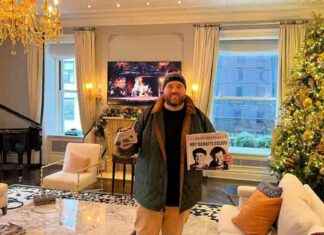Toru Kubota was filming a protest against Burma’s military junta when plainclothes police stopped him. After nearly four months in prison – after receiving a 10-year sentence for inciting dissent and violating telecommunications and immigration laws – the junta has granted him amnesty and he has been allowed to return to his native Japan. With his documentaries Prayer in Peace (I pray in peace) and Empathy Trip (Journey to empathy), Kubota showed for years the plight of the Rohingya population in Burma, which cost them worse treatment at the hands of the police.
A week after his release, he claims to feel “responsible” for the Burmese prisoners who are still being tortured inside the Insein prison and is determined to continue working to help those who suffer from the repression following the coup d’état that on February 1, 2021 swept the country.
Why did you decide to film that protest on July 30?
I knew that protests are the most dangerous places to film, so I made a rule of thumb to stay away from them. But when I got to Naypyidaw (the capital) I noticed a very strange atmosphere. The violence is highly visible in the towns, where air raids persist, but in the capital it seemed as if nothing had happened. I wanted to show how the authorities are silencing people in the city.
Was your arrest planned?
The police went in to check the passports of the guests at the hotel where I was staying a few days before my arrest, but they only wanted to see if anyone against the junta was hiding to prepare an attack. The hotel owners said it was normal behavior. I didn’t tell them I was a journalist, so I think they arrested me on the spot.
How were those three and a half months in prison?
The worst was the emptiness of time; There was nothing to do. They put me in a cell that looked like a box with no windows. He slept on top of a piece of wood and had a hole in the ground for a toilet; it was all he had. But I’m not complaining, because my standard of living was better than most Burmese citizens. In those months, it was common to hear people being tortured, bombardments and shots, especially at night.
Do you mean that you were treated favorably because you were a foreigner?
Yes. After the sentence, I was able to make one call a week to the Japanese embassy and to my family, although there was always someone translating my conversations into Burmese for record keeping. But he would have been tortured more if he had been a Burmese citizen. Some prisoners refused to provide the access code for their mobile phones, and the policemen broke their fingers. I did the same, but they didn’t touch me.
What happened when they discovered that he was a documentary filmmaker?
They treated me worse. Making a documentary about the Rohingya makes them see you as an enemy of the state, because they really hate that minority. They started beating me while smiling and told me that they were going to take me to a place that looked like hell. They put me with more than 20 people squeezed into a cell. There was no sunlight, it was full of dust and roaches, and there was only one toilet in plain sight; it was very unsanitary. To sleep we had to lie on top of each other. It was a terrible place.
The junta accuses him of spreading false information about the Rohingya population.
They accuse me of lying because they know it’s true. They are very afraid that the population is united and they know that the Rohingya are a very good tool to divide people. They portrayed them as an enemy and claimed to be protecting their predominantly Buddhist country from Islam in order to seize power.
What is the situation of this minority today, almost two years after the military coup?
Their situation has worsened after the coup. Rohingyas living in the city hide their identity. And those who are in Rakhine state live in a limited area from which they cannot leave; It’s like an internment camp. There are people trying to escape in small boats by sea to Thailand.
So are the Rohingya population still targeted by the authorities?
People have started to walk together and are including the Rohingya minority in their fight, a union that the authorities fear. Now, the majority of the population is against the junta, so anyone can become their target.
You and 5,773 other prisoners have been released. Can this be seen as a sign that the junta is taking a more moderate turn or that it could end the repression?
The junta uses our release as proof that the country is on the mend so that the international pressure will ease as well. They want to show that they have moderated, but it is a lie: the murders continue. With Law 505, which they established after the coup, they can arrest anyone. We have to continue to listen to the voice of the people who are suffering and not let the junta’s facade distract us.
Do you plan to continue working on the documentary or do you prefer to keep a low profile for a while?
Although most of the time I was isolated, during the months in prison I had the opportunity to talk to the other prisoners, and I need to follow the path for them; I feel responsible. I think it’s very important to connect my work with fundraising to help all those people who are suffering, so that’s what I’m going to do.















